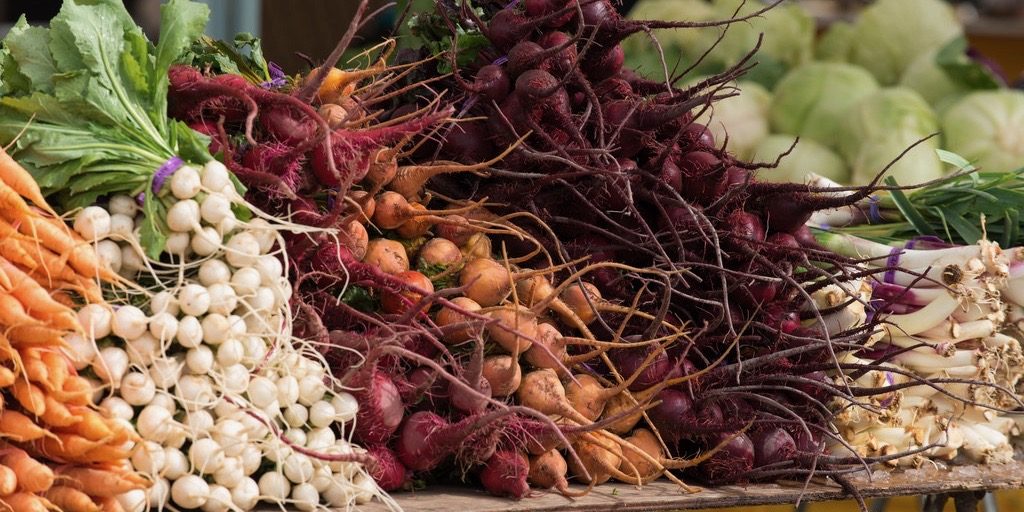
We all love a Durham Food Co-op.
The one that formerly graced the corner of Carroll and Chapel Hill Streets, adorned with the Pauli Murray poster and so delightfully dedicated to its employees? The one where neither service, sustainability, nor unexpired foods were specialties? (You know, the one that now houses The Cookery?) Yes, I love that one!
The new co-op, three blocks further west into the West End, gleaming, modern, and so sustainably run that middle class member loyalty comes, but does not go – much like the rising average median incomes surrounding it? Yes, I love that one!
The one in East Durham, that’s only open once a month, focuses on low-income membership, word of mouth social media, volunteer labor, and Black Lives leadership? The one that supplements SNAP with the goal of enabling families to eat healthy throughout the month and avoid resorting to fast, cheap, processed foods (or go entirely without) toward the end of the month. Yes, I love that one! But … I’ve never heard of it.
East Durham is about 2 miles from the West End and is as concerned with biodiversity, produce appearance, and food monopolies as any other neighborhood that has an internet connection. Residents of East Durham, regardless of income, have drunk the non-FDA approved Kool-Aid of organic, non GMO foods and want some for themselves, and more importantly, for their families. They also like to get those foods from North Carolina African American farmers at a fair price. A historic novelty. To accomplish its goals, living wages and Rochdale Principles are largely on hold.
As with any other big idea, there are challenges. The East Durham Co-op, its leaders and members focus on what they can do, and that is a lot. According to the International Co-operative Alliance (ICA) standards this is a budding co-op. Typically open on the second Thursday of the month, it collaborates with the Food Bank of Eastern and Central North Carolina, Eastern Carolina Organization (ECO), and Farmer Food Share focusing on procuring fresh organic produce, produced by regional African-American farmers when possible. Meats are available, when they are available.
The co-op has written grants, with modest and growing success. MaryAnn Black’s office through the Duke Charitable Grants Committee, Duke’s Doing Good in the Neighborhood Grants, City Matching Grants, and Whole Foods Foundation have all stepped up, and there has also been some private support. Those involved walk multiple tightropes – between balancing the desire to serve more families (currently fifty) with desired capacity to meet greater needs; the need for buy-in (families pay $5.00/month) and the need to serve those with financial need, and the need to respect member privacy (members may be asked if they receive federal benefits, but there are no background checks or intrusions beyond the minimal) and the desire to maintain some level of income control. The co-op is largely volunteer led. Black male volunteers and Black volunteer leaders feature. Members receive big, honking, heavy IKEA bags (not cheap, not cheap, at all) of food and share with friends, neighbors and extended family if they cannot use it all.
Unaddressed challenges include: More transportation volunteers (maybe, someday, an actual van), more refrigeration (this is particularly a challenge around meat – when someone wants to give or sell cheap, you must be ready to receive), the ability to scale around opening more frequently, having separate hours for seniors, or helping create another “instance” of the co-op in another location, and more speakers, especially those who can help address health issues (all types) and link services to those who may need them.
Why does someone love a co-op? Anti-corporatism, anti-genetic modification, anti-monopolism, anti-chemicalism, anti-whateverism, pro-democratic principles, pro-worker/member/common destiny owned empowerment . . . plus, in East Durham, the smile on a family’s face – spirit is in the house –even when Spirit House is not the featured speaker! Not at all sure if specific reasons matter, but please, support all surviving Durham Food Co-ops. After all, what kind of kind world would it be if we all ate the same quality of food throughout the month?
Clarence and Philip: Thanks for showing the variations of co-ops in Durham and focusing on the budding success – and challenges – of the East Durham Co-Op. Two questions for now:
i) I know you are both deeply involved in neighborhood cohesion and empowerment, especially for low-income areas. How is the East Durham Co-Op independent of, yet related to, other organizations interested in biodiversity, volunteer-led initiatives, and African-American leadership? It seems to be a balance of having good partners with resources, while maintaining independence and grassroots control. You mentioned several groups which I think are outside the neighborhood for grant and other support.
ii) Is the East Durham Co-Op seeking connections with the other co-ops in Durham you mentioned? Or do they prefer the independence of focusing on their neighborhood?
Thanks, John
We work with other groups: United Way (providing soups, relationship may grow), Spirit House, which is African American led, has spoken at the Co-op, and the Co-op is an extension or program of Old East Durham Communities in Partnership, which is a grass roots African American led organization.
We are certainly interested in working with other groups, especially co-ops, but we believe that it is vital to our mission to remain a grass roots, African American led organization.
We’d also like to provide two updates. Thanks to the generosity of supporters, we have paid some of the people previously referred to as volunteers and we have received a CSX/Conservation Fund grant that will assist with eventual acquisition of a van. More, we hope, the come!